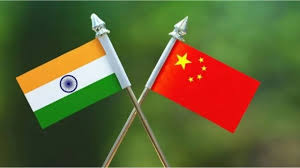1.((Africa)) continents in the world.
Known for its diverse landscapes, wildlife and rich cultural heritage. It is the second largest continent in both land area and population.Africa is a continent known for its rich cultural diversity, stunning landscapes and unique wildlife. With 54 recognized countries, it is the world's second largest continent in terms of both land area and population. From the vast Sahara Desert in the north to the lush rainforests of Central Africa and the iconic savannas of East Africa, the continent boasts a wide range of ecosystems. Africa has a complex history, marked by ancient civilizations, colonialism, and struggles for independence. This history has shaped its diverse societies and contributed to both its challenges and resilience. Despite facing many challenges such as poverty, political instability and health crises such as HIV/AIDS and malaria, Africa is also a continent of immense potential. It has abundant natural resources, including oil, minerals and fertile land, as well as a young population that can be a driving force for economic growth and development. Furthermore, Africa is fast becoming a hub of innovation and entrepreneurship, with booming tech industries in cities like Lagos, Nairobi and Cape Town. Efforts to improve infrastructure, expand access to education and healthcare, and promote sustainable development are underway across the continent. While Africa faces various obstacles in its progress, it also represents a region of immense opportunity and cultural richness that has much to offer the world.
2.((Antarctica))
Antarctica is governed by an international treaty known as the Antarctic Treaty System (ATS), which was signed in 1959. The treaty establishes Antarctica as a scientific protectorate, ensuring freedom of scientific investigation and prohibiting military activities, nuclear testing, and mineral mining. More than 50 countries are currently parties to the treaty, which promotes peaceful cooperation in scientific research and environmental protection. The continent has research centers run by different countries, in which scientists study various fields such as glaciology, climatology, biology and astronomy. These research efforts contribute to our understanding of climate change, biodiversity, and the unique geology of the continent. Despite its remote and harsh environment, Antarctica is of utmost importance to global scientific research and environmental protection efforts. As climate change continues to impact the region, understanding and preserving Antarctica's ecosystems has become increasingly important for the future of the planet.
3.((Asia))
Asia is characterized by its vast cultural heritage, with traditions dating back thousands of years. From the ancient civilizations of Mesopotamia and the Indus Valley to the great dynasties of China and the empires of India, the continent has been a cradle of civilization and a source of artistic, philosophical and scientific progress. Today, Asia's cultural diversity is celebrated through its festivals, music, dance, cuisine and literature, which reflect the unique identities of many of its peoples. Despite its vastness and diversity, Asia is united by shared challenges such as poverty, environmental degradation and social inequality, inspiring collaborative efforts to address these issues and create a more sustainable future for the continent and the world.
4.((Europe))
Europe is the world's second-smallest continent by area, with an area of approximately 10.18 million square kilometers (3.93 million sq mi). It is bordered by the Arctic Ocean in the north, the Atlantic Ocean in the west and the Mediterranean Sea in the south. In the east, Europe is separated from Asia by the Ural Mountains, the Ural River, the Caspian Sea, and the Caucasus Mountains. Europe is home to a wide variety of cultures, languages and history. It is often considered the birthplace of Western civilization, with ancient Greece and Rome playing important roles in shaping its cultural heritage. The Renaissance, which began in Italy during the 14th century, also had a profound impact on European art, literature and science. Today, Europe is made up of approximately 50 countries, each with its own unique culture, language, and traditions. Some of the largest and most influential countries in Europe include Germany, France, the United Kingdom, Italy, and Spain. The European Union (EU) is a political and economic union of 27 European countries that work together on various issues such as trade, environmental protection and security. Europe's economy is one of the largest in the world, with a diverse mix of industries including manufacturing, finance, tourism and agriculture. The continent is known for its high standard of living, well-developed infrastructure and strong social welfare systems. In terms of geography, Europe has diverse landscapes, from the snow-capped peaks of the Alps in the south to the flat plains of Northern Europe. It is also home to several rivers, including the Danube, the Rhine and the Thames, which have played an important role in shaping the history and culture of the continent. Overall, Europe is a fascinating and dynamic continent with a rich history, vibrant cultures and diverse landscapes, making it a popular destination for travelers and a major player on the global stage.
5.((North America))
United States, Canada, Mexico, and many others. Its geography ranges from the frozen tundra of northern Canada to the tropical rainforests of Central America. The continent is rich in natural resources including vast forests, abundant freshwater sources and mineral deposits. North America has a complex history, including indigenous cultures inhabiting the land long before European colonization. The arrival of European explorers and settlers in the 15th century dramatically changed the demography and cultures of the region. This colonization led to the establishment of European colonies, the spread of Christianity, and the displacement and marginalization of indigenous peoples. Today, North America is a mix of cultures with a rich culture of languages, traditions and cuisine. It is also home to some of the world's largest economies and most influential cities, such as New York City, Los Angeles, Toronto, and Mexico City. The continent plays an important role in global politics, economics and culture, shaping trends and influencing development around the world.
6.((South America))
Geography: South America is known for its diverse geography, including the Andes Mountains, the Amazon Rainforest, the Atacama Desert, and the vast plains of the Pampas. The continent is home to the Amazon River, the world's longest river by volume, as well as the Andes, the longest mountain range. Culture and Languages > South America is culturally diverse, with a rich mix of indigenous cultures, European influence from colonization, and African heritage due to the transatlantic slave trade. Spanish and Portuguese are the predominant languages spoken in most countries, although several indigenous languages are also spoken. Countries > South America consists of 12 sovereign states, including Brazil, Argentina, Peru, Colombia, Venezuela, Chile, Ecuador, Bolivia, Paraguay, Uruguay, Guyana, and Suriname. French Guiana, a territory of France, is also located in South America. Economy> The economies of South American countries vary widely, with Brazil being the largest economy in the region. Other major economies include Argentina, Colombia and Chile. The continent is rich in natural resources such as oil, minerals and agricultural products, which contribute significantly to its economy. Biodiversity>South America is famous for its incredible biodiversity, especially in the Amazon rainforest, which is home to millions of species of plants and animals. The continent has many national parks and protected areas that aim to preserve its unique ecosystem. South America has a complex history marked by indigenous civilizations, European colonization, and struggles for independence. The region was home to advanced pre-Columbian civilizations such as the Inca, Maya, and Aztec. Spanish and Portuguese colonists arrived in the late 15th and early 16th centuries, establishing colonies and exploiting the native population. Overall, South America is a continent of great natural beauty, cultural richness, and historical importance, making it a fascinating and diverse region of the world.
7.((Australia))
Australia is a country located in the Southern Hemisphere, consisting of the mainland of the Australian continent, the island of Tasmania, and several smaller islands. It is the sixth largest country in the world in terms of total area. Australia is known for its stunning landscapes, diverse wildlife and vibrant cities. The capital of Australia is Canberra, while the largest city is Sydney, famous for its iconic Sydney Opera House and Sydney Harbor Bridge. Other major cities include Melbourne, Brisbane, Perth and Adelaide. Australia is famous for its unique wildlife, including kangaroos, koalas and distinctive monotremes such as the platypus and echidna. The Great Barrier Reef, located off the coast of Queensland, is the world's largest coral reef system and a UNESCO World Heritage Site. The country has a rich Indigenous history, with Aboriginal and Torres Strait Islander peoples being the custodians of the land for over 65,000 years. Today, Australia is a multicultural society, with a diverse population that includes people from different ethnic backgrounds and cultures. Economically, Australia is a highly developed country with a strong market economy. It is known for its natural resources, particularly coal, iron ore and gold, as well as its thriving industries in sectors such as agriculture, mining, tourism and services. Australia is also famous for its outdoor lifestyle, with activities such as surfing, hiking and camping popular with both locals and tourists. The country's climate varies from temperate in the south to tropical in the north, offering visitors a wide variety of experiences to enjoy. Overall, Australia is a dynamic and multicultural country with a rich history, stunning landscapes and a high quality of life. you visit my another websites>>social inequality. call girl in gurugram gurugram call girl escort service gurugram gurugram escorts













.jpg)









0 Comments